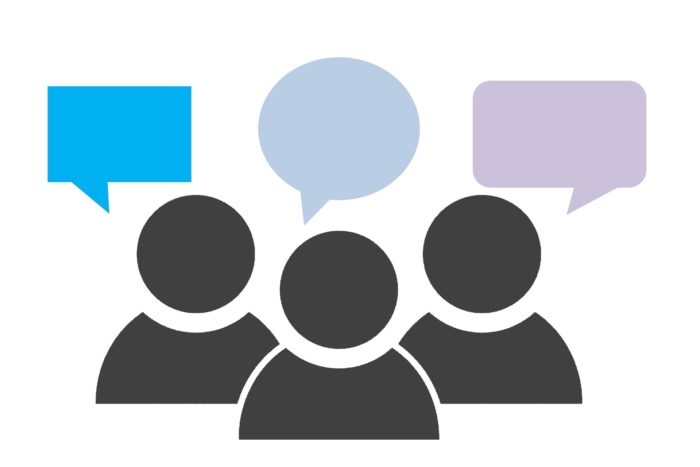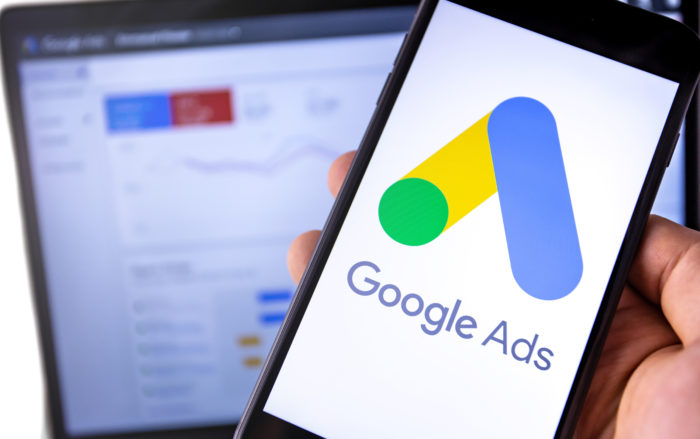Content creators test the newly released Google Question Hub. Some say it’s a rich supply of content ideas, others say not so much. You decide!
Facebook says no more freeloading on Workplace!
Professor Jeff Ferguson provides a different paradigm for SEO that will make your head spin!
These are just three of the stories we’ve highlighted in this edition of Stukent’s News You Can Use. Go forth and prosper.
- Google Launches Question Hub
- Say Goodbye to the Workplace Essential Free Plan
- Google Ranks Web Pages, Not Sites
- How to get better at Incrementality
- Google Just Made it Simpler to Flag a Disputed Review
- Google Ads: Looking back at 2020 and Ahead to 2021
- Pinterest Launches a New Way to Automate Targeting
- Facebook is Both Hated and Rich
Google Launches Question Hub
Topic: Content Creation | Ecommerce | SEO

Key Point: The much anticipated beta release of Google Question Hub in the USA drew plenty of cheers in January. The new platform (first tested in India, Indonesia, and Nigeria) provides a way for Google to point content creators to questions that currently do not have adequate answers on Google Search.
Why should you care? The new platform lets you discover questions pertinent to your business, then create content to address the query on your own website, and finally complete the circle by dropping the URL of your answer in Question Hub to help Google tie the knot.
There’s no guarantee you’ll get a listing in the Google Knowledge Graph, or that you’ll get more than the normal SEO boost from your content — but the opportunity is certainly there. It’s like Google calling you up to ask, “Hey, there are some queries we need answered. Would you be willing to create content we can use to respond to those users?”
You’ll need to clear a few hurdles to get signed up, but all content creators should at least take a look and give the idea some thought. Here’s where to get started: Google Question Hub.
ALSO SEE: Question Hub launches in the USA
Suggested Activity
Create a Question Hub account, then see how many queries you can find that apply to your niche, or to a niche you hope to enter.
Say Goodbye to the Facebook Workplace Essential Free Plan
Topic: Social media marketing

Key Point: Facebook says its Workplace platform “has brought the power of community to millions of people in organizations around the world.” But, Facebook now says the Free Plan is going away. Starting February 10th of this year, though, those millions of people will need to pay at least $4.00 per month to keep reaping the benefits.
Anyone who doesn’t plan to keep using the collaborative benefits provided by a Workplace free account can download content on or before February 9th.
Discussion Idea
Is Facebook hoping to expand video conferencing and deliver a serious challenge to Zoom with the additional funding? If not, what is Facebook’s endgame here?
Google Ranks Web Pages, Not Sites
Topic: SEO | Ecommerce

Key Point: It’s an interesting take on an old problem: How do you get your website to rank high in the SERP (search engine results page) for your best keywords and keyword phrases? Digital marketing expert, Jeff Ferguson, says that’s the wrong question, because Google ranks pages, not sites.
To accept that concept is to throw several dearly held beliefs out the window (site authority, for instance) and to embrace others (covering many topics on a site is absolutely fine). It’s a short, but interesting read. And you can get it right here: Google Ranks Pages.
Discussion Idea
Could it be that page rank and site rank are BOTH important? Whether you answered yes or no, what does Professor Ferguson’s statement about the centrality of page rank mean to your content marketing strategy?
How to Get Better at Incrementality
Topic: Analytics | Ecommerce

Key Point: At budget-setting time, questions invariably arise about which marketing assets are delivering the highest (and lowest) conversion rates. It’s especially difficult to measure the contributions from social media and blog posts. After all, wouldn’t many of the site visitors originating from Facebook, for instance, have visited your website anyway?
Google proposes three ways to get a better grip on incrementality: Channel-silo, Cross-stack, and Marketing-portfolio. If you’re ready for a deeper dive into the mysteries of Google Analytics, this Avinash Kaushik Consumer Insight article will give you a jump-start.
Discussion Idea
What is the difference between attribution and incrementality? And why should Avinash Kaushik be worth listening to?
Google Update Just Made it Simpler to Flag a Disputed Review
Topic: SEO

Key Point: Competitors playing games, customers trying to get back at you for not putting up with their nonsense, employees fired for misconduct — these characters and more can leave malicious reviews on Google that cast your business in an unsavory light.
However, a new update inside the Google My Business dashboard will help business owners and managers flag those reviews as contrary to guidelines. You can get an excellent summary of those changes right here: Review Flagging Options Update.
Discussion Idea
What are the parameters regarding which types of reviews Google will remove from a Google My Business listing?
Updates to Google Ads: Looking Back at 2020 and Ahead to 2021
Topic: Online Advertising

Key Point: Podcasts can be an excellent way to learn. Plug and play through earbuds while you’re getting some exercise, or stream through your car radio and listen while you’re driving. We’ve found a podcast episode winner for digital marketers: The Marketing O’Talk podcast gathered a bevy of seasoned Google Ad practitioners to discuss the major updates that happened in 2020 … and how they see the rest of 2021 stacking up. It’s another “Don’t miss this” recommendation: Google Ads Then and Now.
Suggested Activity
Listen to the podcast, then discuss the points made. Agree? Disagree? Do you have observations of your own to make?
Pinterest Launches a New Way to Automate Targeting
Topic: Social media marketing

Key Point: Pinterest says the new dynamic creative ad specialty will save time while boosting the ability of advertisers to find out what’s working and what’s not. According to Adweek, the partner-driven initiative, will enable users to “generate multiple versions of new Pins using uploaded assets or a product feed, and they can automatically import product data such as availability, location and price.”
Social Media Today covered the story as well, quoting a Pinterest assertion that “This not only reduces the time and effort required to make custom ads that are relevant to unique groups of consumers, but helps advertisers test and identify which creative elements drive performance.”
Facebook is Both Hated and Rich
Topic: Social media marketing

Key Point: Facebook turns the information collected from you, your friends, and the other 2.6 billion or so Facebook users into gobs of cash — almost $86B in 2020. There are enough lawsuits against the social media giant to keep an army of lawyers busy, and there’s a growing crowd of Facebook haters who would like nothing better than to see the company fail.
Despite the bad press, the lawsuits, and the opposition, Facebook financials are strong enough to make competitors burn with envy. How can that be? It turns out that you, your friends, and the aforementioned 2.6 billion or so other users are creating just about all the content for Facebook … for free. Facebook collects the data on what you Like, what you click on, who you Follow, and a whole lot more. Then, Facebook sells that information to advertisers and provides a way for them to turn your personal attributes into gotta-have-it products.
Whether you’re a Facebook lover or a Facebook hater, this article by New York Times writer Shira Ovide will give you and your team plenty to think about (and plenty to talk about).
Your Turn
That’s the Stukent wrap-up of news from the world of digital marketing over the past 30 days. Our hope is that you’ll add the insights covered here to your personal collection of tips, tricks, and hands-on experience (including wisdom gained from Stukent Simulations) to get out there and start making some news of your own.
If anything, the COVID-19 experience thus far has proven the value of ecommerce and digital marketing to the worldwide economy. We’ve been threatened, but we’ve not been beaten. A proverb so old that generations have profited from its wisdom says this: “Where there’s a will, there’s a way.”
There is a way, and you’re on it! See you next month.
Bonus Info:
Facebook updated the page layout for public figures and creators
Google now shows older posts in the Knowledge Panel
Gmail ads will no longer be available beginning July 1st
Instagram launched a new professional dashboard
Facebook’s Zuckerberg says Apple is one of the company’s biggest competitors






